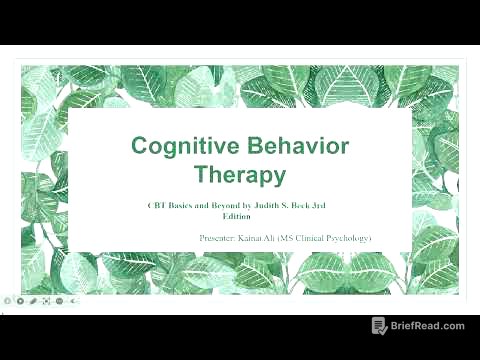TLDR;
This video emphasizes the critical importance of list-making in network marketing and provides a detailed guide on how to create, maintain, and utilize lists effectively. It highlights the difference between those who follow a system and those who don't, with a strong emphasis on the benefits of adhering to a structured approach. The video also covers essential parameters for selecting potential candidates from the list to maximize success.
- Importance of list-making in network marketing.
- Difference between systematic and unsystematic approaches.
- Guidelines for creating, maintaining, and updating lists.
- Parameters for selecting potential candidates.
The Importance of Making a List [0:08]
The initial message is a strong encouragement to create a list, emphasizing its fundamental importance. The speaker argues against relying solely on memory or mobile devices, as these are fallible. He introduces the concept of a "system" and contrasts it with a "without system" approach, likening it to the difference between success and failure. A systematic person follows instructions, such as making a list, while someone without a system questions the necessity of such steps. The speaker stresses that failing to make a list is a critical first misstep that hinders success in network marketing.
Real-Life Examples and the Consequences of Not Following the System [2:16]
The speaker shares personal anecdotes, including his father-in-law's retirement event, to illustrate the importance of list-making. Despite being told that 300-400 people would attend, the actual list was inadequate. He also mentions his brother-in-law's upcoming marriage, where the list is yet to be made, highlighting a common tendency to delay or avoid systematic planning. The speaker draws a parallel to the Indian habit of not wearing a helmet until fined, emphasizing that the "virus" of not following systems is deeply ingrained. He points out that those who don't follow the system often make excuses and create small, inadequate lists, already pre-judging who will participate.
Common Mistakes and the Right Way to Create a List [5:37]
The speaker discusses common mistakes people make when creating lists, such as making small lists with predetermined outcomes or creating large but irrelevant lists filled with celebrity names. He stresses the importance of including people who know you and whom you know. The speaker highlights that those who follow a straight path succeed faster, while those who are "crooked" face more obstacles. He likens making a list to establishing a foundation for a business, as essential as religious texts.
The Impact of List Size on Mindset and Success [9:12]
The speaker explains that a short list leads to quick disappointment and a feeling that opportunities are limited. He uses the analogy of having only a few mangoes versus a truckload to illustrate how a larger list allows for higher standards and less compromise. A big list fosters a confident posture and prevents the need to overly pursue or "worship" potential candidates. The speaker cautions against pre-judging people based on superficial characteristics, emphasizing that success comes from inner qualities, not appearances.
Creating a City-Wise List and Updating It Regularly [14:52]
The speaker advises organizing the list alphabetically by city to leverage opportunities across different locations. He stresses the importance of treating the list with respect, as it is the "capital" and "raw material" of the business. Updating the list regularly is crucial, as new people enter one's life over time. The speaker notes that those with positive attitudes and cheerful demeanors tend to attract more people into their network. He shares his personal experience of creating and expanding his list, emphasizing the importance of following the system without opposition.
The 'FRIENDS' Formula for List-Making [19:50]
The speaker introduces the acronym "FRIENDS" as a comprehensive formula for creating a list:
- F - Family and Friends
- R - Relatives
- I - In-laws
- E - Engineers and Technical Persons
- N - Neighbors
- D - Doctors and Dreamers
- S - Strangers
He explains each category, emphasizing that following this formula can easily generate a list of 500 people.
Organic vs. Inorganic Approaches and the Importance of Personal Effort [22:39]
The speaker contrasts the "organic" approach of creating one's own list with the "inorganic" approach of relying on others to provide leads. He advocates for organic methods to ensure long-term, sustainable success. He reiterates the key steps: make a list, make it big, organize it by city, update it regularly, and use the "FRIENDS" formula.
Selection Parameters: Age, Income, and Social Credibility [23:49]
The speaker outlines three critical parameters for selecting potential candidates from the list:
- Age: Target individuals between 22 and 45 years old, as they are typically more energetic and open to new opportunities.
- Income: Focus on those earning between 30,000 to 80,000, as they are often seeking additional income and are more receptive to business opportunities.
- Social Credibility: Prioritize individuals who are respected and have a positive reputation in their community.
He shares a story to illustrate the importance of social credibility, cautioning against involving individuals who could damage the business's reputation. The speaker concludes by emphasizing that these parameters help identify the most promising candidates for success in the business.









